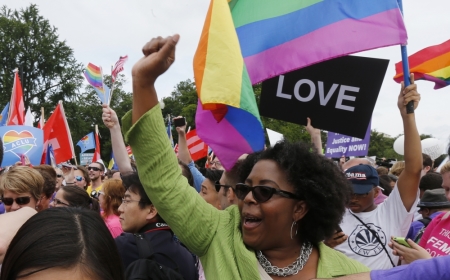Millennials, Gen Z growing more uncomfortable with LGBT movement: survey

A new survey shows that although widely considered to be the most accepting of generations, the LGBT movement is falling out of favor with millennials and younger Americans.
According to The Accelerating Acceptance report, conducted by The Harris Poll for the LGBT advocacy group GLAAD, survey respondents who were in the 18–34 age bracket reported that they were much less tolerant of LGBT men and women than they were in surveys taken the previous two years.
The organization has been tracking this sentiment to measure "the state of America's hearts and minds when it comes to accepting LGBT people," their website states.
The report was released ahead of Friday's 50th anniversary of what many see as the inception of the modern LGBT movement in the U.S., the Stonewall riots in New York City.
Young people ages 18-34 were the only age group to see a decline in positive feelings toward LGBT individuals.
For adults age 72 and older, while less comfortable with LGBT history being taught in schools, the data show their level of discomfort with LGBT persons decreased from 47 percent in 2017 to 37 percent in 2018.
Forty-five percent of young respondents who do not identify as LGBT indicated that they were either "somewhat" or "very" comfortable around LGBT persons, a decrease from 53 percent in 2017 and 63 percent in 2016.
In the span of three years, the drop was most observable among young men, 62 percent of whom expressed favorable feelings toward LGBT persons in 2016, to 40 percent in 2017, to 35 percent last year.
"While young people are identifying as LGBT in higher rates than ever before, there has also been an uptick in non-LGBT young people pushing back against acceptance," GLAAD President Sarah Kate Ellis, noted in the report.
The Accelerating Acceptance report's findings reveal that the trend of growing discomfort appears for several reasons.
Thirty-nine percent of young non-LGBT respondents reported they are somewhat or very uncomfortable learning that their child had been taught a lesson on LGBT history in school. In 2016, only 27 percent said the same.
Twenty-five percent of the same group said they were uncomfortable having a teacher who is LGBT in 2016. In 2018 that same scenario yielded an increase to 33 percent.





















